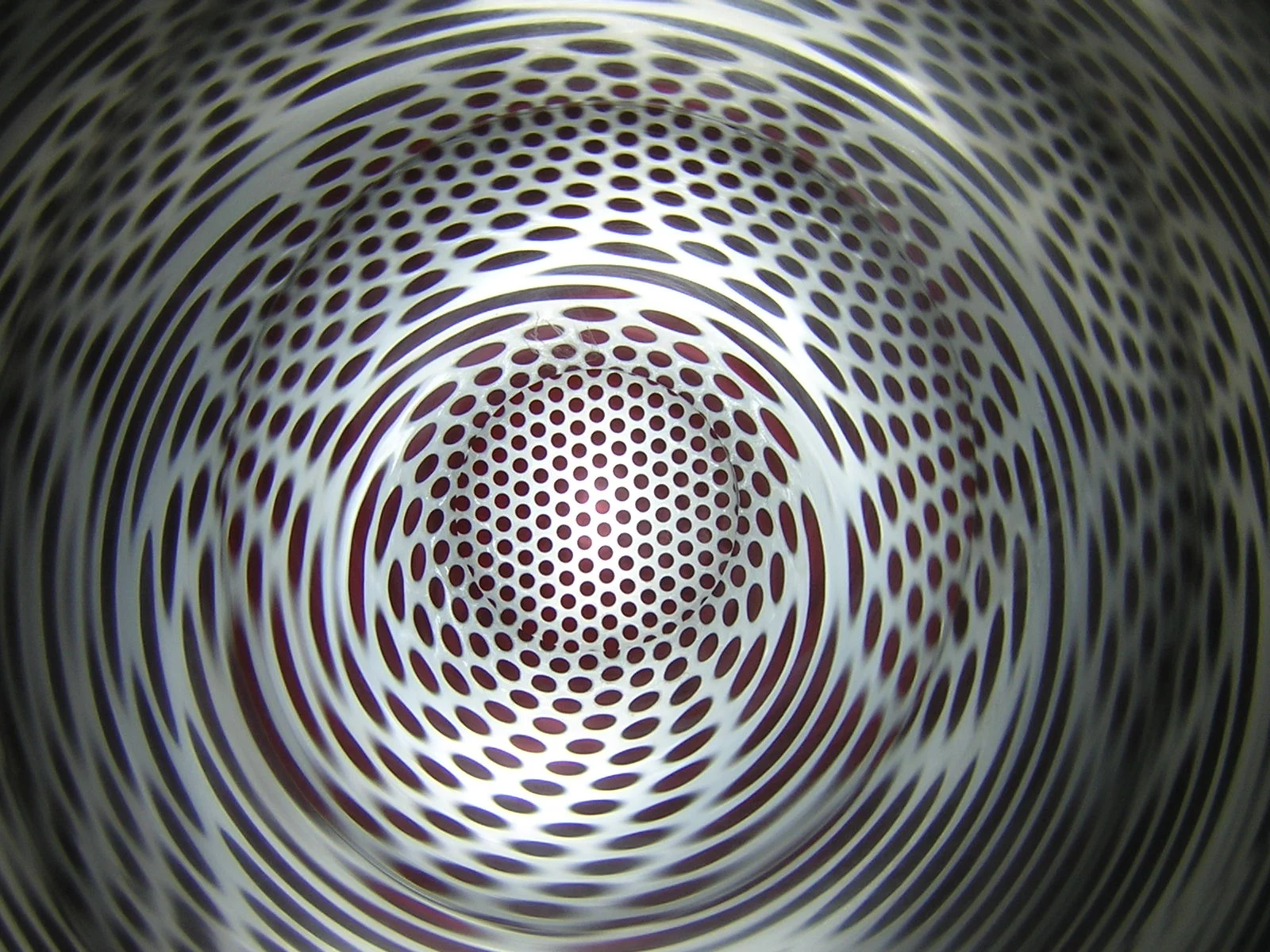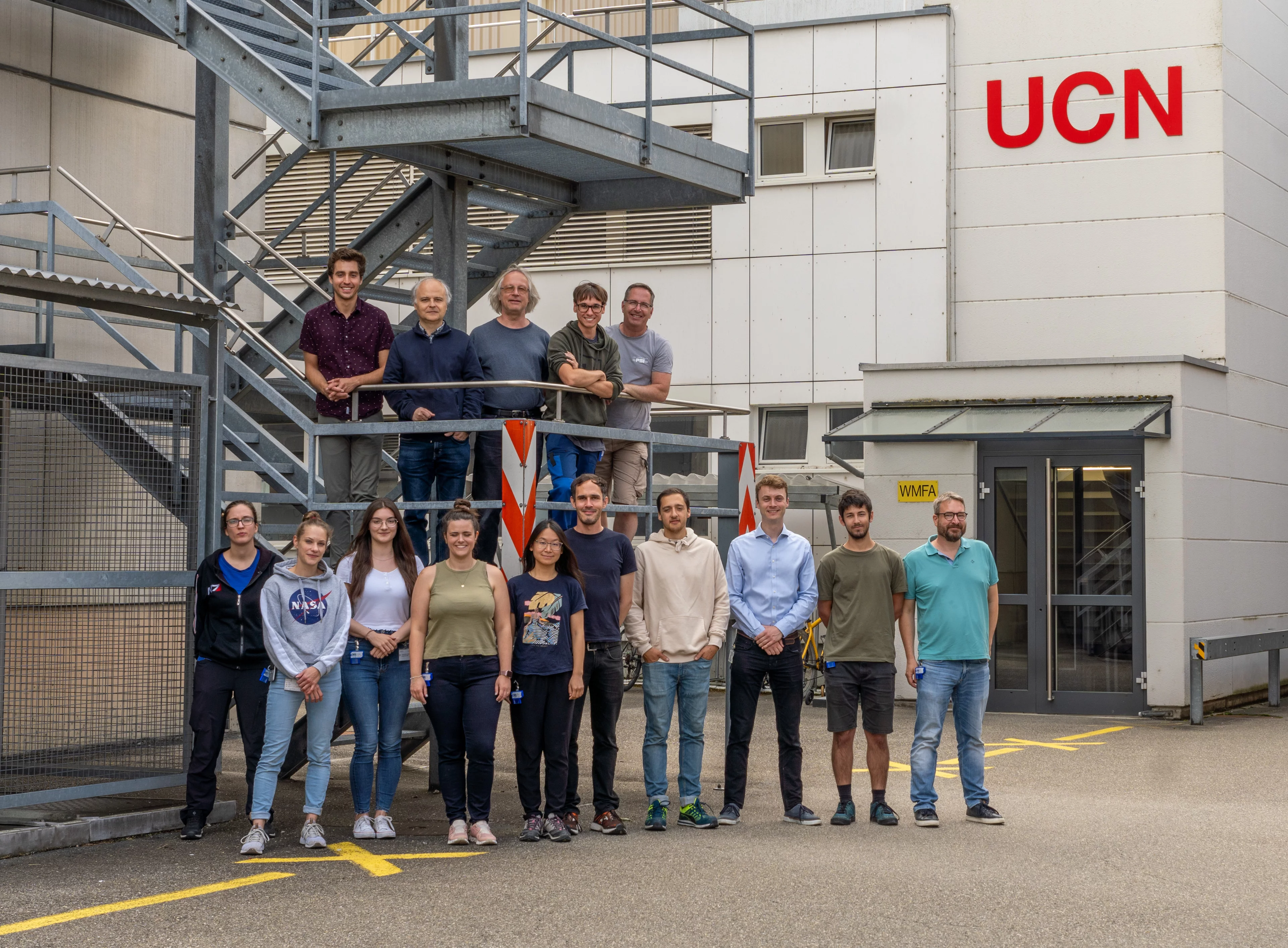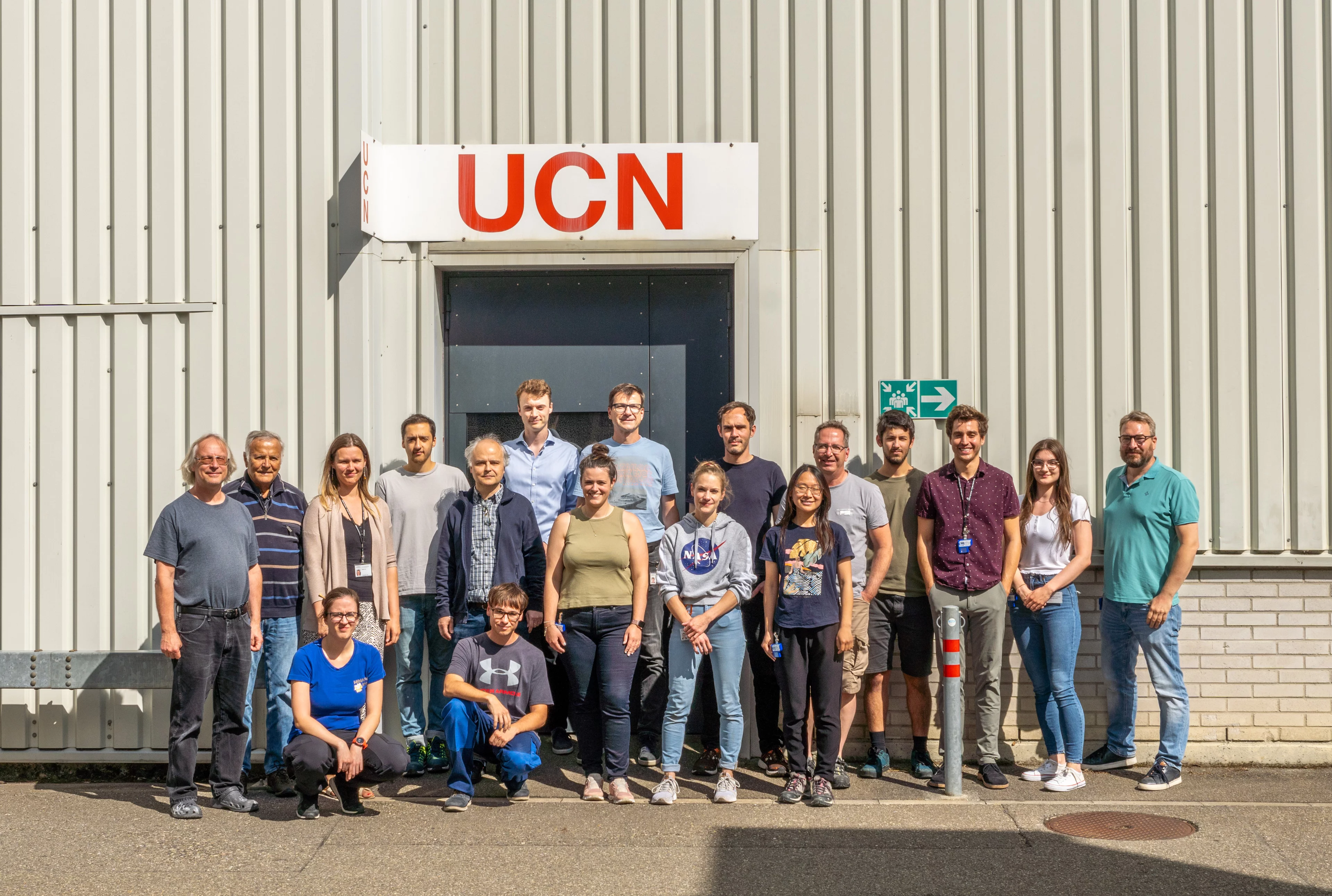The UCN-Physics group performs experiments with ultracold neutrons (UCN). It is strongly involved in the characterization, optimization and exploitation of the high intensity UCN source at PSI. The facility serves two experimental areas with three beam ports. Experiments are performed based on high profile research proposals. Within the international nEDM collaboration the UCN-Physics group pursues a measurement of the electric dipole moment of the neutron which is considered one of the most important experiments in low energy, precision particle physics today.
UCNs in Fundamental Physics
The possibility to store UCNs for relatively long observation times makes them unique and highly sensitive probes, testing our understanding of fundamental physics. Most of these experiments today are statistically limited and further advancements strongly depend on new high-intensity sources for UCNs. A key experiment is the search for a permanent electric dipole moment of the neutron (nEDM). A finite nEDM violates time-reversal invariance and, therefore, might help to understand the matter–antimatter asymmetry in our universe. It is tightly linked to some of the open problems in modern physics, the so-called “strong CP-problem” and the “SUSY CP-problem.” Its observation would be a clear indication for physics beyond the electro-weak Standard Model of particle physics. Other important studies with UCNs include the determination of the neutron lifetime and decay parameters, strongly influencing our understanding of weak interactions and big bang nucleosynthesis. UCNs are also being used to study fundamental quantum mechanics, search for exotic interactions and dark matter particles, test baryon number conservation, and measure properties of the neutron itself, such as the search for a tiny but finite charge of the neutron.
Learn more ...
The PSI UCN Source
A user facility providing ultracold neutrons (UCN) for fundamental physics research, based on accelerator driven spallation neutron production and a superthermal converter, is routinely operating (live status) at the Paul Scherrer Institut. More on the UCN Source...
nEDM Collaboration
A new measurement of the neutron electric dipole moment (nEDM) at the PSI UCN source, using the Ramsey method of separated oscillatory fields, finished its data taking phase and published an improved limit in Physical Review Letters. This current upper limit on nEDM (<1.8x10-26 e.cm, 90% C.L.) constrains some extensions of the Standard Model of particle physics. Our future experiment, n2EDM aims at a sensitivity better than 10-27 e.cm to find an eventual nEDM. More on the n2EDM Project




